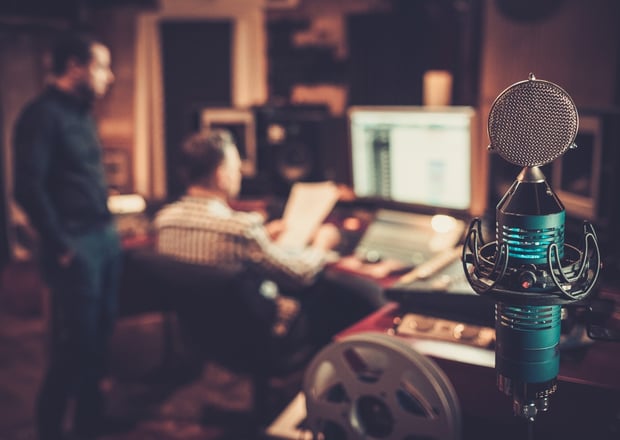 Image via Shutterstock
Image via Shutterstock
Let’s just get this out of the way: the music industry is anything but stable right now, and might remain that way for the foreseeable future. Nobody knows where the money will come from, what the future of streaming looks like, or if we’ll ever get back to those wonderful pre-digital glory days. But I’m not here to bring anyone down. Actually, I believe turmoil and uncertainty provide a great backdrop for innovation and creativity. As a well-known entrepreneur said, "Fortunes are built during the down market and collected in the up market."
Enough fretting about how many streams equate to an old-school CD purchase or what Snapchat filter best represents your band’s ethos. Let’s keep all eyes on the ball and push forward. It’s time to embrace the chaos and make it work for you, as an artist running your music like the business it truly is.
Here’s the reality of today’s music world, as expressed by a digital advertising exec: "Everyone wants to have a strategy that plans ahead for the next three years. But no one knows what the fuck is going to happen three months from now, so how can you possibly plan for the next three years?"
Want to know how to stay afloat in choppy waters like this?
- Focus on what you control and stop devoting energy to that which you cannot
- Seek opportunities where others only see empty space
- Jump on trends early…or better yet, start your own
What's in your control?
Two of the most essential elements of your business are still in your hands, regardless of what’s going on outside the studio: your music and your fans. First, your music is your product, and the job at hand is to get it out there as efficiently and effectively as possible. Listen to advice from industry vet Bob Lefsetz:
If you’re spending a year or two polishing 10 tracks, you’re missing the point. The game has changed. You must be making music constantly. Uploading covers and work tracks to YouTube. Releasing a single when it’s ready. You’re a musician, not a businessman. There’s a tsunami of information and if you want to get noticed you must rain constantly, even if it’s just a mist. If you’re creating a storm every once in a while, you’ll be forgotten, if you’re even noticed.
You saw what Kanye just did, right? It’s a classic startup move: release your product when it’s good enough (not perfect), ask for feedback and validation, then iterate and continue the experiment. What’s stopping you from doing something similar with your music?
On the fan side, there is little reason for artists not to create environments in which you own as much of the relationship with fans as possible. That means growing and nurturing an email list and cultivating a community who speaks directly with you.
[10 Tricks to Build and Maintain an Engaged Email List for Your Band]
Capturing all the data about your music and fans can be tricky, though, as Zoe Keating points out: "I want my data and…see absolutely no reason why I shouldn’t own it. I wish I could make this demand: stream my music, but in exchange give me my listener data."
This just calls for some creativity. There’s plenty you can do to answer questions like, "What type of music consumers are likely to be my super fans?" through strategic customer development practices.
Where is nobody looking right now?
I’m combining thoughts number two and three above, as they're closely interrelated. Trends are not always easy to spot, and by the time the media at large picks up on them, it may be too late. One way to capitalize on major movements early on is to "follow the money." In a recent "NMS Thoughts" email, the New Music Seminar crew called this trend out (emphasis mine):
Dominic Pandiscia left his post as President of Caroline to take on the CEO role at PledgeMusic, while Benji Rogers, PledgeMusic's co-founder, will move from CEO to Chief Strategy Officer. When you see someone move from an independent distribution and service company to a Direct2Fan company that recently acquired Noisetrade and Set.fm, two significant players in the D2F space, artists should pay attention to see how this can benefit their career. Benji knows strategy!
Here’s another wave about to smash down upon us. Guess what service is bigger than social networks? Messaging apps. Between Facebook Messenger and Facebook-owned WhatsApp, 60 billion messages are sent every… single… day. Very soon, it will be commonplace for people to interact with brands – like music services and musicians themselves – through artificial intelligence-powered chatbots. And then there’s virtual reality, quickly creeping into everyday life.
You don’t have to be a tech wizard or investment guru to take advantage of trends like these. You just need to keep your eyes open and have the courage to experiment with things before they are adopted by the masses. Heck, maybe even stretch the definition of what actually constitutes a song.
Next up: 4 New Ways to Market Your Music in 2016 That You Probably Haven’t Tried Yet
Dave Marcello is Head of Artist Growth for Audiokite Research, where music creators get unbiased and affordable feedback on their songs.


